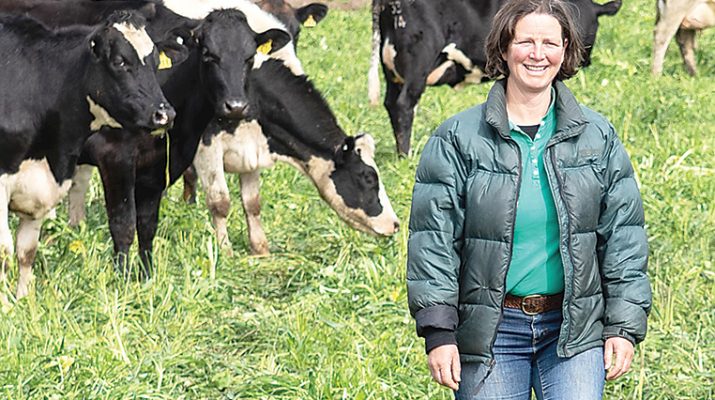By MICHELLE SLATER
DAIRY Australia is marking a decade of reducing environmental impacts in the industry through a framework designed to take dairy beyond 2030.
The Australian Dairy Sustainability Framework was developed in 2012 in consultation with dairy farmers, manufacturers, governments, retailers, customers, and interest groups.
Since then, 94 per cent of farmers are reducing emissions on their farms and dairy emissions intensity has reduced by 25 per cent since 2010-11.
Newry dairy farmer, Kate Mirams, milks 300 cows on her property, where she is carrying out sustainable measures such as planting trees and fencing off areas for vegetation.
She said in the past 10 years, the industry had excelled in animal welfare and environmental practices, particularly around the impacts of climate change.
“Now the biggest eye-opener is the potential for soil. Our purpose around stewardship for the land has changed from sustainability to how we can improve the health and ecology of the landscape,” Ms Mirams said.
“Soil health determines the nutrient density of everything that grows in the soil and the health of everything we eat.”
Ms Mirams said farmers had a “huge opportunity” to draw carbon down into the soil, and create a humus-rich environment with greater nutrient and water holding capacity.
The farm is part of a carbon trial being run in conjunction with AgVic and the West Gippsland Catchment Management Authority, which so far has found better water profiles in the soil.
She said practices such as ditching certain types of soluble fertiliser and pesticides in favour for multi-species crops and rotational grazing was paying-off.
“What grows above the ground also grows below the ground. We need to stop doing anything that changes the environment in the soil. We are forging ahead with learning about this,” she said.
“It’s promising and exciting. People are aware that soil health is the key to our future and is the biggest opportunity to make a difference.”
Dairy Australia sustainability general manager, Helen Dornom, said the industry haD been constantly reviewing, adapting, and evolving to meet the changing needs of the world.
“Since 2012, we’ve made big strides in our commitments, with farmers providing good stewardship of our natural resources and meeting the challenges of climate change,” Ms Dornom said.
“However, we know there is more to be done. It’s undeniable that the world needs nutritious food options such as dairy.
“As food producers, we have a responsibility to produce food in a sustainable way, and we won’t stop striving to adapt our production systems to be more sustainable now and into the future.”

